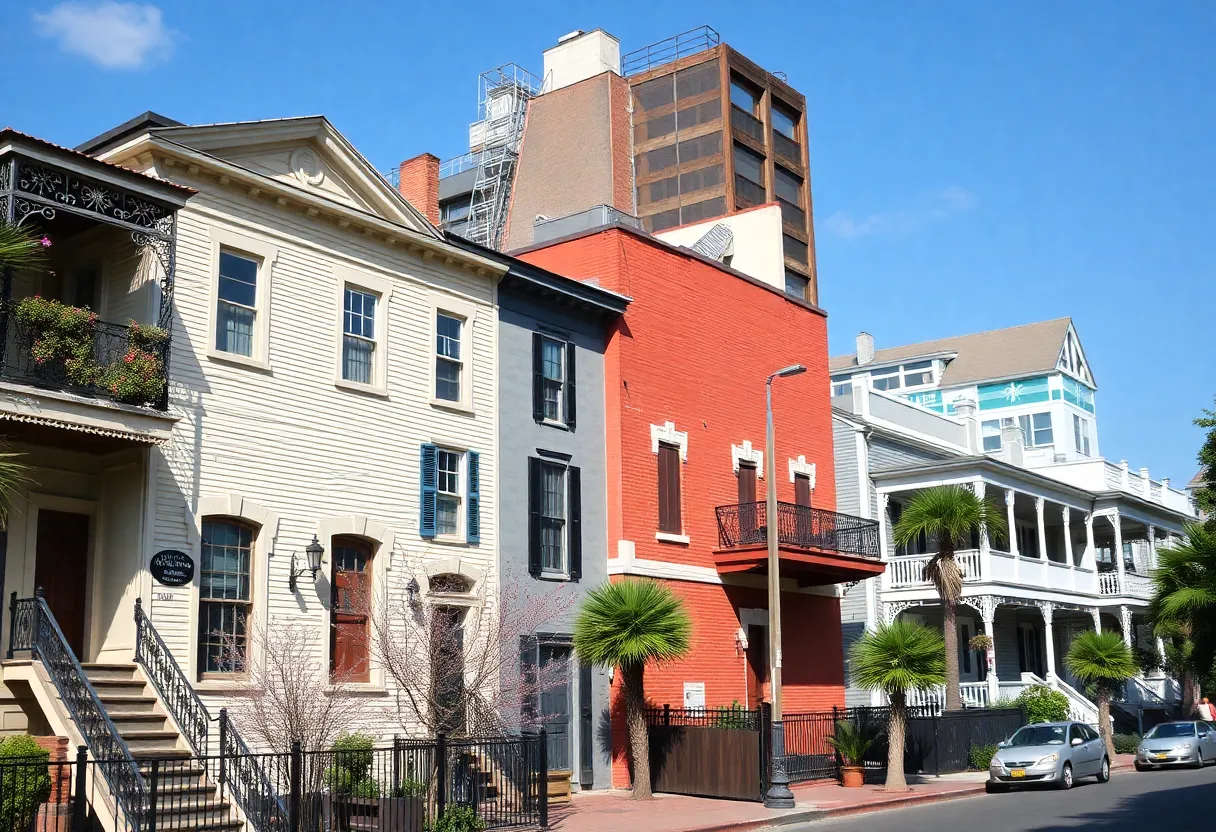News Summary
New Orleans is grappling with a worsening housing crisis more than 20 years after Hurricane Katrina. The median home price has surged nearly 10%, leading to increased cost-burdened renters. Historical issues exacerbate current challenges despite recent legislative efforts. The city struggles with a significant decline in housing units and a pressing need for affordable rentals.
New Orleans, a city still reeling from the impacts of Hurricane Katrina, is facing a deepening housing crisis more than two decades after the storm. The median sales prices for homes have reached $335,000, marking a nearly 10% increase from the previous year and landing New Orleans among the top 10 U.S. cities with the fastest-growing home prices. Meanwhile, the percentage of severely cost-burdened renters has surged from 24% in 2004 to 34% in 2024.
The erosion of affordable housing options in New Orleans has deep historical roots, dating back to before Katrina. According to the 2000 census, a housing crisis already existed, with two-thirds of extremely low-income households categorized as cost-burdened, meaning they spent more than 30% of their income on housing. At that time, homeownership rates in New Orleans were less than half that of the national average, which was two-thirds.
Hurricane Katrina exacerbated the situation, flooding 80% of the city and damaging around 134,000 occupied housing units—representing approximately 70% of all occupied housing in New Orleans. Poor neighborhoods suffered significantly, with many high-poverty census tracts virtually erased. In the aftermath, promises were made to rebuild better; however, many displaced residents found it financially untenable to return due to soaring housing costs.
Investment after Katrina was expected to be in the billions, but Marjorianna Willman, the executive director of the Housing Authority of New Orleans, indicated that these investments have not translated into improved housing affordability. Programs like the Road Home Program, hailed as the largest home repair initiative in U.S. history, faced criticism for disproportionately favoring affluent neighborhoods over poorer ones, facilitating quicker development in wealthier areas.
Despite the program’s termination and the dropping of lawsuits against homeowners for alleged fund misuse, the overall housing stock in New Orleans has declined. From 2000 to 2020, the total housing units dropped from approximately 215,091 to 193,840, creating a significant shortfall in affordable housing. Currently, there is a pressing need for an additional 55,000 affordable rental units.
Recent efforts to address the housing crisis, such as a 2019 zoning law mandating affordable housing in new developments and a 2024 Housing Trust Fund expected to generate around $17 million annually, represent notable legislative changes. Despite these steps, New Orleans received an F grade from HousingNOLA for its ongoing housing efforts for the sixth consecutive year, highlighting a lack of progress in resolving the crisis.
The shift in the city’s demographics also discloses the impacts post-Katrina, with the population decreasing at an annual rate of 1.78%. Although the population has gradually recovered to about 79% of its pre-storm level by 2014, it has not returned to 2000 levels, with the racial demographic shift from 67% Black to 56% contributing to concerns regarding the social fabric of the community.
Neighborhoods like Bywater have experienced marked gentrification with median home prices soaring from $315,000 in 2017 to $517,500, further straining the budget of existing residents while promoting the development of more exclusive markets. The city also bears a vacancy rate of over 20% as of 2022, with about 10,000 of the 40,000 vacant homes deemed occupiable but facing high repair costs, driving potential residents away.
As nonprofit groups and local initiatives like Habitat for Humanity work to provide fortified, affordable housing, they face continual challenges due to rising construction and insurance costs. Property insurance premiums in Louisiana have surged to an average of $10,964 in 2024, compounding the financial pressures for homeowners.
Ultimately, the combination of implementing affordable units, preserving investments in existing housing, and fostering community engagement are emphasized as crucial components in efforts to revitalize neighborhoods in New Orleans. However, the path to a stable housing market remains fraught with difficulties amid escalating costs and declining affordability.
Deeper Dive: News & Info About This Topic
HERE Resources
New Orleans Housing Market Faces Ongoing Challenges
New Orleans Faces Population Decline and Recovery Challenges
Meta’s $10 Billion AI Data Center Set to Transform Holly Ridge, Louisiana
Dorian M. Bennett, Arts Patron and Real Estate Leader, Passes Away
UL Lafayette Partners with Local Hotel for Student Housing
Marking Two Decades Since Hurricane Katrina
Louisiana Implements ‘One Door’ Workforce Policy
Lafayette, Louisiana: Affordable Living Amid Rising Costs
Lafayette Unveils Affordable Living Amid Rising Costs
Archdiocese of New Orleans Files for Chapter 11 Bankruptcy
Additional Resources
- Smart Cities Dive: New Orleans Katrina Housing Affordability Crisis
- Wikipedia: Hurricane Katrina
- Biz New Orleans: Signs of Progress in the Affordable Housing Crisis
- Google Search: New Orleans housing crisis
- Fox 8 Live: Rising Costs Behind Affordable Housing New Orleans
- Google Scholar: affordable housing New Orleans
- NOLA: Housing in New Orleans – Politics and Trust Fund
- Encyclopedia Britannica: affordable housing

Author: STAFF HERE NEWORLEANS WRITER
The NEW ORLEANS STAFF WRITER represents the experienced team at HERENewOrleans.com, your go-to source for actionable local news and information in New Orleans, Orleans Parish, and beyond. Specializing in "news you can use," we cover essential topics like product reviews for personal and business needs, local business directories, politics, real estate trends, neighborhood insights, and state news affecting the area—with deep expertise drawn from years of dedicated reporting and strong community input, including local press releases and business updates. We deliver top reporting on high-value events such as French Quarter Festival, New Orleans Jazz & Heritage Festival, and Essence Music Festival. Our coverage extends to key organizations like the New Orleans Chamber of Commerce and Greater New Orleans, Inc., plus leading businesses in energy, healthcare, and education that power the local economy such as Entergy, Ochsner Health, and Tulane University. As part of the broader HERE network, including HEREShreveport.com, we provide comprehensive, credible insights into Louisiana's dynamic landscape.

